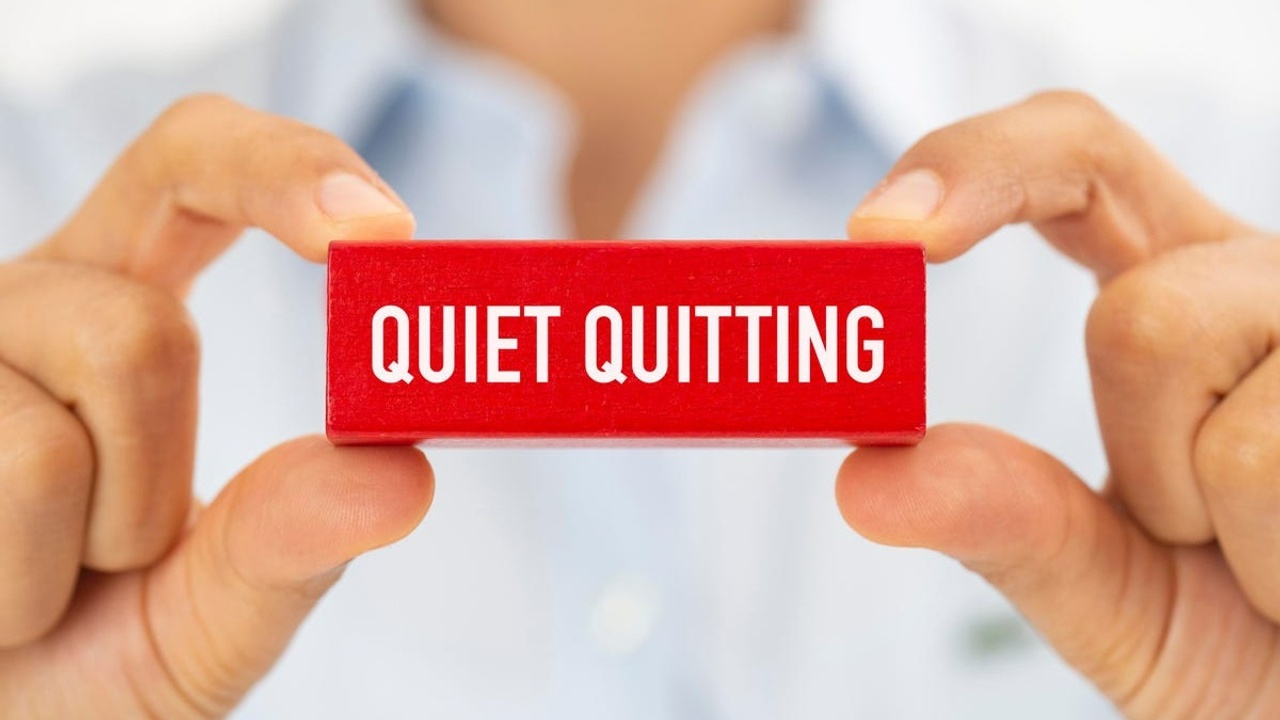When People Around You Are Quiet Quitting

How many of you have seen this? You work in a culture where mediocrity is the norm. Where there is no incentive to be more dedicated because the underperformers are allowed to do the minimum. Where much is expected and there is little appreciation or reward.
There is a term for people who want to do the minimum of what is expected and nothing more. "Quite Quitting." I've seen this term debated and justified many times. Some cultures are so toxic that people quiet quit just to maintain their sanity. Other people become so disgruntled with their boss, having been passed over for promotion, an unfair distribution of work, or some other practice that they become tired, burned out and angry. Quiet quitting is intentional and becomes a survival mechanism.
My take on it is this - We don't get chosen for employment. We choose employers. We apply, interview and accept a position. We aren't entitled to work anywhere. We choose to. If we aren't happy there we can choose to have a discussion with our boss or Human Resources about it and any other opportunities within the organization. If conditions are egregious we can file complaints within the organization and with the government.
We can also choose to leave. That means you’ll have to update your resume, determine your measurable accomplishments, define your transferable skills to broaden your search to other industries, collect letters of reference, research a company watch list and put yourself out there. Most managers will tell you there are plenty of open positions in corporate America they can’t fill. Quiet quitting can seem easier yet is dangerous for your future.
Nobody owes us anything. When you consciously choose to stay in a role you don’t like and show up intentionally not giving your best effort, you have just undermined your own wellbeing, efficacy and hireability - in that job and often in one to come. Those who quiet quit will argue they do give their best effort and nothing more. It needs no editorial comment.
I understand some cultures are more prone to quiet quitting than others - especially the ones with pre-determined raises for budgeting purposes and little accountability. Rise above it because it only hurts you to not be at your best. You might say, “Why should I? It doesn’t matter.”
You don’t work for your employer. You work for yourself.
Don’t justify holding back your brilliance because you think the company doesn’t deserve your best effort. Holding back is mutually exclusive. When you position your mind, emotions and actions to hold back in one area you are practicing minimizing yourself. You start to play small in other aspects of your life - risk taking, learning new things, creating new relationships. Show up every day in your genius. Go home every night satisfied. And if you can't do that, make a change. The choice is yours. You have power here.
Someday soon there’ll be a position suited for you, or a friend suited for you, or a move suited for you or an opportunity suited for you. And you’ll know you’re ready. No self-doubt, excuses, cynicism, posturing, procrastinating, imposter syndrome, perfectionism for you. That’s for negative people who don’t see opportunities. You practice self-mastery and excellence every day. You’re ready. You're satisfied with your life. And you want to be somewhere where you can learn, grow and feel good about what you do. Hiring managers can see your mindset too. They can tell your work ethic. And they will want you as a "Must have!" over the "nothing special."
Leaders, reward high performance with your personal gratitude. Be specific in what you see and how they make a measurable impact on you and the organization. Make it personal. Show your employees they have a place to belong on your team. Be their reward. Others will notice. And hold the underperformers accountable to the goals. It’s not a confrontation between them and you. It’s them being measured against their goals. You're simply the guide pointing out the obvious that everyone sees. “You haven’t __________. I’ll need that by Thursday at noon.” Very matter of fact. No emotion.
Managing ourselves is the most important work we do. What thought do you want to remember that will bring ease to your work?
Get Mary Lee's free report: 10 Ways You Are Killing Your Executive Presence.
Listen to Mary Lee's Still Space Podcast where you listen to podcasts or here. This article is a transcript from one of her podcasts.
Mary Lee Gannon, ACC, CAE is an executive coach and 19-year corporate CEO who helps leaders have more effective careers, happier lives and better relationships with the people who matter while it still matters. Get any of her free publications at www.MaryLeeGannon.com
Stay connected with news and updates!
Join our mailing list to receive the latest news and updates from our team.
Don't worry, your information will not be shared.
